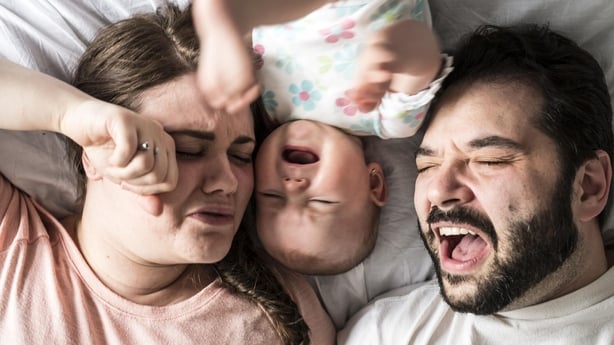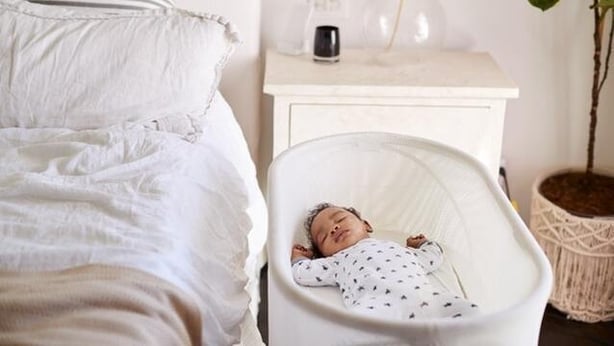To soothe or not to soothe, that is the question all parents and parents-to-be must grapple with once they enter the world of parenthood.
The seemingly eternal debate on whether or not you should let your crying baby tire itself out has raged for years, and has carried with it a fair share of mammy or daddy guilt. While some feel the practice is cruel, others think it builds resilience in the tearful tot.
Now, a new study has reignited the debate by saying that leaving your baby to cry it out causing no more harm than rushing to shush and cuddle it.

The belief that parents should immediately sooth their babies stems from attachment theory, with those in favour of it saying that leaving babies to cry can damage the parent-child bond and lead to higher stress levels in the baby.
On the flip side, some argue that doling out attention to a crying baby only promotes more crying, so you're better off leaving them to tire themselves out.
The new study, published from the University of Warwick, says that leaving babies to cry has no knock-effect on their behavioural development or how close they are to their mothers. In fact, they found that it may help infants develop self-control.
"We may have made a mountain out of a molehill," said Professor Dieter Wolke, the co-author of the study, as quoted in The Guardian.
Researchers from the University of Warwick followed 178 babies and their mothers in the UK from birth to 18 months. The mothers were asked how often they left their baby to "cry it out" across a specific timeline: soon after birth, at three months, six months and 18 months.

They were also asked about how long their babies cried and how often, as a newborn and at three months and 18 months.
They also monitored the relationship between the mother and baby, using video-recorded interactions to gauge how sensitive the mothers were to their infants. At 18 months, they examined the child's behavioural development and attachment to their mother.
The findings were that mothers rarely left their children to cry alone as newborns, but as they got older they would rush to their aid less and less. Two thirds of mothers came to let their children cry it out sometimes or often by the time the children were 18 months old.
According to the team's findings, the children started to cry less and less by 18 months, which they perceived as a benefit. As well as this, they claim that the practice does no harm as they saw no negative impact on the level of attachment between the mother and her child, how sensitive the mothers were or how the child's behavioural development at 18 months.
This, they said, was backed up through a combination of techniques including a questionnaire completed by the parent, a psychologist’s report and watching the infant play with its mother.
"We neither recommend leaving infant to cry out nor responding immediately," the authors write.
Wolke asserted that while leaving your child to cry sometimes could be a good thing, parents should not neglect a crying child outright, particularly in early life.

